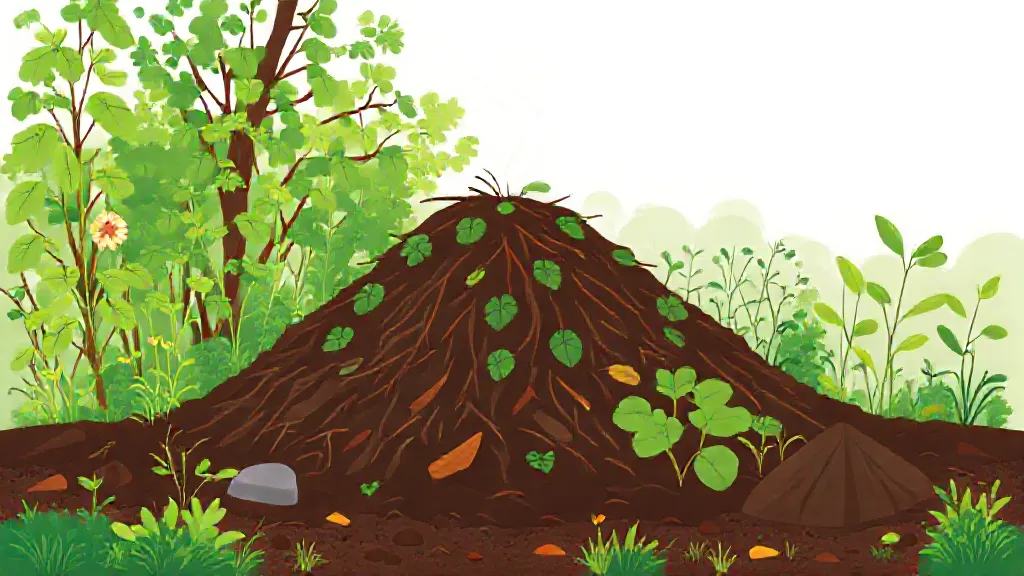Composting is a natural process that transforms organic waste into a valuable resource, enriching the soil and contributing to sustainable agriculture. However, its benefits extend far beyond soil enrichment; composting plays a crucial role in mitigating climate change by reducing greenhouse gas emissions. Understanding how composting helps lower these emissions is essential for individuals and communities aiming to combat global warming.
Understanding Greenhouse Gases and Their Impact
Greenhouse gases (GHGs) such as carbon dioxide (CO2), methane (CH4), and nitrous oxide (N2O) trap heat in the atmosphere, leading to global warming and climate change. Landfills are significant sources of methane, a gas that is over 25 times more potent than CO2 in terms of its heat-trapping ability over a 100-year period. When organic materials like food scraps and yard waste decompose anaerobically (without oxygen) in landfills, they produce methane.
Composting, by contrast, is an aerobic process that minimizes methane emissions and transforms waste into a beneficial product.
The Composting Process
Composting involves the breakdown of organic matter by microorganisms, fungi, and other decomposers in the presence of oxygen. This process can occur in backyard compost bins, community composting programs, or industrial composting facilities.
The composting process typically includes four main ingredients: carbon-rich materials (browns), nitrogen-rich materials (greens), water, and air. The balance of these elements is crucial for efficient decomposition, resulting in nutrient-rich compost that can be used to enhance soil health and fertility.
Reducing Methane Emissions Through Composting
By diverting organic waste from landfills, composting significantly reduces methane emissions.
According to the U.S. Environmental Protection Agency (EPA), composting can prevent the release of millions of tons of methane each year.
For instance, composting just 10% of organic waste can reduce methane emissions equivalent to taking thousands of cars off the road. Furthermore, when compost is applied to soil, it improves soil structure and increases its ability to sequester carbon, further contributing to climate change mitigation.
Soil Health and Carbon Sequestration
One of the lesser-known benefits of composting is its ability to improve soil health.
Compost enhances soil structure, increases water retention, and promotes biodiversity in the soil ecosystem. Healthy soils can store more carbon, thus acting as carbon sinks. Research has shown that soils enriched with compost can sequester significant amounts of carbon, helping to offset greenhouse gas emissions from other sources.
This dual benefit of composting—reducing emissions and enhancing carbon storage—highlights its importance in climate action strategies.
Community-Level Impacts of Composting
Composting can have a profound impact at the community level. Community composting initiatives not only reduce waste but also foster a sense of environmental stewardship among residents.
These programs can educate individuals about sustainable practices and the importance of reducing food waste. Furthermore, when communities engage in composting, they can create local jobs, stimulate the economy, and build resilience against climate change by enhancing local food systems and reducing reliance on external resources.
Policy and Composting: A Path Forward
To maximize the benefits of composting in reducing greenhouse gases, supportive policies are essential.
Governments can implement incentives for composting programs, provide resources for community initiatives, and promote regulations that encourage waste diversion from landfills. For example, some cities have implemented mandatory composting laws, resulting in significant reductions in landfill waste and corresponding GHG emissions. By prioritizing composting in waste management strategies, policymakers can create a more sustainable future.
The Role of Individuals in Composting
Individuals play a crucial role in the success of composting initiatives. By adopting composting practices at home, people can significantly reduce their carbon footprint. Simple actions, such as setting up a compost bin for kitchen scraps and yard waste, can lead to substantial waste diversion from landfills.
Moreover, individuals can advocate for composting programs in their communities, participate in local composting workshops, and educate others about the environmental benefits of composting.
Conclusion: A Sustainable Solution to Climate Change
In conclusion, composting presents a powerful solution to reduce greenhouse gas emissions while promoting environmental sustainability. By transforming organic waste into valuable compost, we can mitigate methane emissions, improve soil health, and sequester carbon.
As individuals and communities embrace composting, we can collectively contribute to combating climate change and fostering a healthier planet for future generations. The path forward involves not only individual actions but also supportive policies and community engagement to maximize the benefits of composting for the environment.
